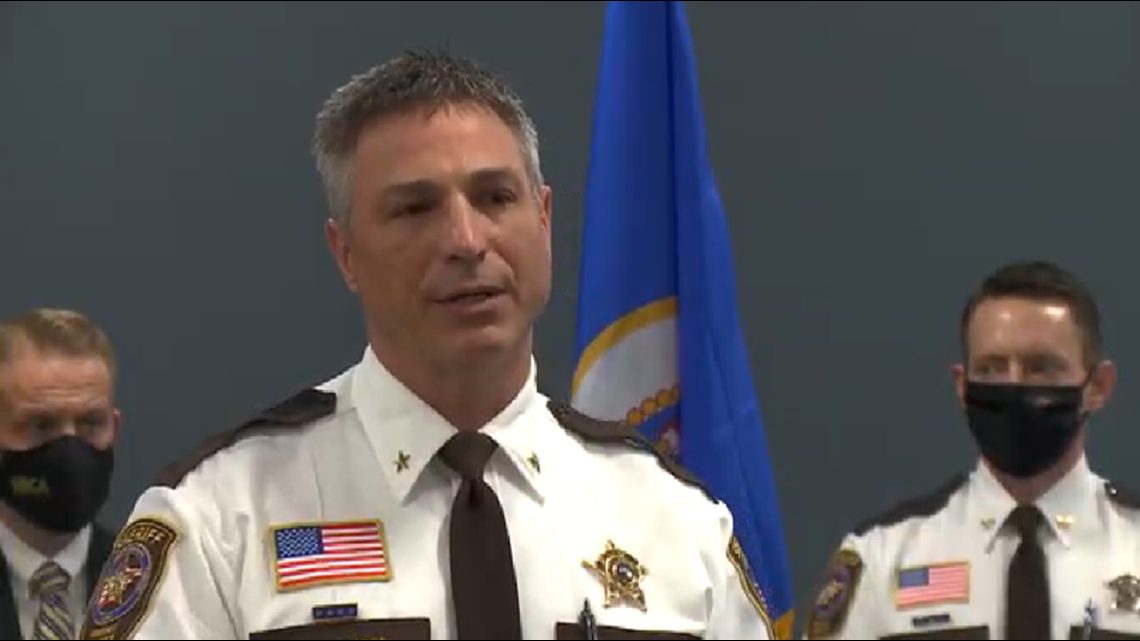BUFFALO, Minn. — Even before Tuesday, Gregory Ulrich had so many red flags in his history it would have seemed impossible he could have legally owned a gun.
There were the dozens of run-ins with Buffalo Police dating back more than a decade.
Two years ago, his doctor told police that Ulrich threatened a mass shooting at the Buffalo Hospital.
He was charged with violating a harassment restraining order filed by the doctor, where a judge wrote that Ulrich had stated that “killing one individual wouldn’t be enough” and that “his intent was to get at least 30 years in jail and possibly a straight jacket.”
He would plead guilty in that case, but it was dropped by the prosecutor who wrote Ulrich was “found mentally incompetent to proceed.”
A probation agent in that case strongly recommended that Ulrich not be allowed to have access to firearms.
And yet despite all of those warnings, Ulrich could have legally owned the Smith and Wesson that he’s charged with using to kill one woman and wound four others at a Buffalo health clinic on Tuesday.
How is that possible? Because after his criminal case was dropped, if he had applied for a purchase permit, then under state law, police would have almost no choice but to grant him one, multiple experts told KARE 11 after reviewing records in the case.


“Based on what was available to law enforcement, there was nothing to preclude him” from having one, said Jim Fleming, a defense attorney and expert in Minnesota’s gun laws.
‘The law is clear … we shall issue’
It’s not publicly known if Ulrich had such a permit. Ulrich’s former roommate told KARE 11 that he saw a gun permit issued to Ulrich by the Buffalo Police Department last year sitting next to the shooting suspect’s Smith and Wesson. But the roommate had no evidence to back up his claim.
Wright County Sheriff Sean Deringer said during a press conference Thursday that he was forbidden under state law from saying whether Ulrich had a purchase permit. But he also spoke at length at how often law enforcement’s hands are tied when they get such applications.
“The law is clear – that if they meet this threshold, we shall issue,” Deringer said. “It’s not like it used to be where we could use a little bit more discretion.”
Not in national background check system
Here’s how law enforcements' hands may have been tied:
Start with the harassment restraining order granted by a judge after Ulrich’s doctor told police he threatened to shoot-up the Buffalo Hospital.
There’s nothing in state law that prevents someone with a restraining order against them from getting a gun permit, unless a judge specifically makes that a part of the order, Fleming said. That did not happen in Ulrich’s case, records show.


After Ulrich was criminally charged with violating that restraining order, the judge in that case ordered him to surrender any firearms. But that was only a temporary order – and still didn’t prevent him from getting a purchase permit.
At some point during the case, Ulrich applied for such a permit. After he pleaded guilty to the crime, a probation agent became aware of the application and wrote to the court that “it is highly recommended that the defendant not be allowed to have use or possession of any dangerous weapons or firearms as part of his probation,” records show.
But that recommendation was rendered all but moot when less than a week later the judge in the case ordered Ulrich to undergo a psychological evaluation.
Though Ulrich’s evaluation records are not public, in April 2020, Buffalo city prosecutor Scott Baumgartner dismissed the charge, writing Ulrich was found “mentally incompetent to proceed.”
That was the critical mistake made that allowed Ulrich access to a firearm, said Joseph Olson, a longtime gun rights lobbyist in Minnesota and Hamline professor.
State law forbids anyone from having a firearm “who has ever been found incompetent to stand trial or not guilty by reason of mental illness.”
But that designation needs to be made by a judge, not a prosecutor, Olson said.
Indeed, a Minnesota court spokesman confirmed that because there was no judicial finding of incompetence entered into the record, there was nothing to give to the National Instant Criminal Background Check System.
Olson said the prosecutor should have continued the case and had the judge decide whether Ulrich was mentally incompetent.
“Had the (attorney) used the court procedure, the Buffalo police could have taken immediate action well before the shootings this week,” Olson said. “The entire system depends on government officials using the tools the law provides.”
Baumgartner did not respond to a request for comment.
Gun safety advocates are jumping on Ulrich’s case, showing there’s a need for so-called “extreme risk laws,” where police or family can petition a judge to temporarily prohibit someone from having firearms.
“This appears to be a textbook case where an extreme risk law could have saved lives,” said Luke Entelis, counsel for Everytown for Gun Safety.

